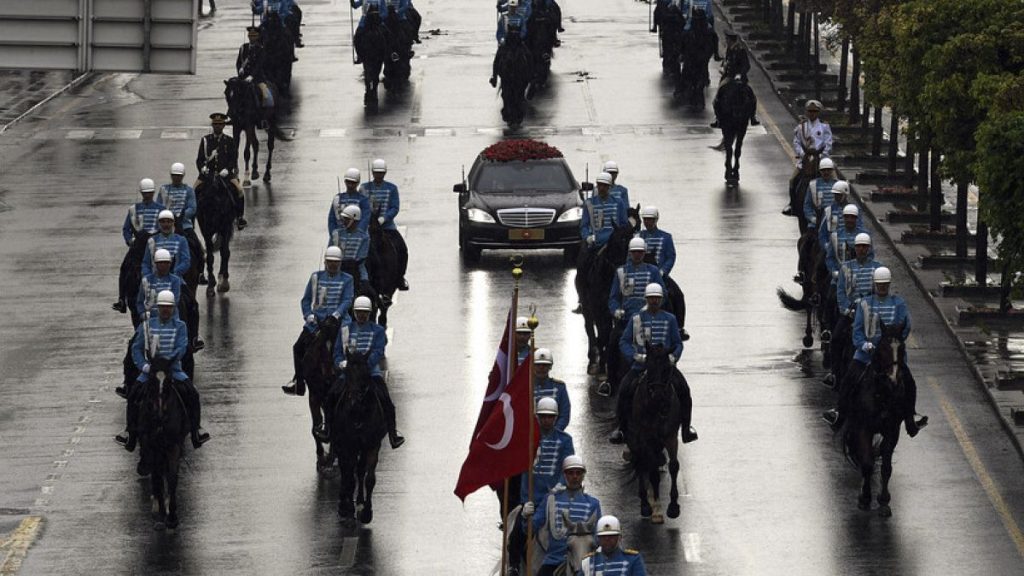Turkish President Recep Tayyip Erdoğan and Lebanese Prime Minister Najib Mikati convened in Ankara for bilateral discussions centered around the escalating tensions in the Middle East, particularly the repercussions of the Israeli-Palestinian conflict on Lebanon. Mikati briefed Erdoğan on the precarious situation in Lebanon, detailing the widespread damage inflicted by intensifying Israeli attacks targeting Hezbollah. A key concern raised by Mikati was Israel’s continued violation of Lebanese territory despite a ceasefire agreement, prompting Erdoğan to call for international pressure on Israel to uphold the ceasefire and compensate Lebanon for the damages incurred. Erdoğan reiterated Turkey’s unwavering commitment to supporting Lebanon and its people, pledging to utilize all available resources to counter Israeli aggression. He commended Mikati for his leadership during this tumultuous period, emphasizing Turkey’s consistent policy of advocating for a ceasefire in Gaza as the cornerstone of regional stability.
Erdoğan strongly condemned Israel’s actions, asserting that a security strategy based on bloodshed and civilian casualties is fundamentally flawed. He criticized the Israeli government for its perceived failure, or unwillingness, to recognize this reality. Erdoğan emphasized Turkey’s long-standing support for Lebanon, pledging continued assistance in the face of Israeli aggression. He lauded Prime Minister Mikati’s leadership amidst the ongoing crisis. Mikati, in turn, expressed gratitude for Turkey’s support, highlighting the severe human, economic, financial, social, and environmental repercussions of the prolonged Israeli aggression on Lebanon. He underscored Israel’s continued violation of Lebanese sovereignty and territorial integrity, stressing the breaches of the ceasefire agreement.
The discussions between Erdoğan and Mikati extended to the evolving situation in Syria, a nation sharing borders with both Turkey and Lebanon. The leaders addressed the power vacuum created by the ouster of Syrian President Bashar al-Assad and the subsequent Israeli military activities within Syria. Israel’s justification for these actions, which they claim are targeted at military assets and aimed at preventing dangerous weapons from reaching extremist groups, was also discussed. Israel’s establishment of a buffer zone in the Golan Heights, ostensibly to address security concerns in the wake of al-Assad’s departure, drew criticism from regional powers, including Turkey and Lebanon, who view it as an infringement on Syrian territory.
Erdoğan reiterated Turkey’s commitment to upholding Syria’s territorial integrity and supporting its people amidst decades of conflict. He stressed Turkey’s dedication to the reconstruction of Syria, the restoration of normalcy, and the establishment of an inclusive administration that represents the country’s diverse population. Erdoğan’s statements served as a veiled warning to Israel against further encroachment on Syrian territory. He underscored Ankara’s commitment to the Syrian people, emphasizing the importance of rebuilding the nation and establishing an inclusive government that represents the diverse tapestry of Syrian society.
Mikati acknowledged Turkey’s pivotal role in promoting regional stability, specifically referencing the situation in Syria. He echoed concerns about Israel’s occupation of Syrian territory, urging international pressure for its immediate cessation. He expressed hopes for Syria’s return to stability and reaffirmed Lebanon’s support for Syrian sovereignty. Mikati voiced Lebanon’s aspiration for constructive relations with Syria based on mutual respect, cooperation, and neighborly ties. He expressed Beirut’s desire to collaborate with the Syrian people in fostering a positive bilateral relationship founded on respect and cooperation.
The meeting between Erdoğan and Mikati underscored the shared concerns of Turkey and Lebanon regarding regional stability, particularly in the context of the Israeli-Palestinian conflict and its spillover effects. The leaders emphasized the need for international pressure on Israel to adhere to the ceasefire agreement with Lebanon and address the damages incurred. They also expressed their commitment to Syria’s territorial integrity and the well-being of its people. The Ankara meeting solidified the alliance between Turkey and Lebanon, emphasizing their shared commitment to regional stability and their resolve to address the ongoing challenges in the Middle East. The discussions highlighted the complex interplay of regional dynamics and the urgent need for a comprehensive and sustainable solution to the ongoing conflicts.














